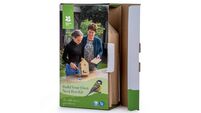Colman Noctor: Parenting a highly sensitive child brings its own rewards

Dr Colman Noctor: "A highly sensitive child is not simply 'overly emotional'. Their nervous system processes stimuli — sounds, sights, emotions— more intensely than other children. This sensitivity means they may be more affected by loud noises, chaotic environments, or interactions with others than most children."
Parenting is a mixed bag. It is an experience filled with joy, challenges, and countless surprises. One of those challenges can be a child with a sensitive temperament. Roughly one in five children are highly sensitive, according to the research psychologist Elaine Aron, whose book popularised the term in 1996. According to Aron, highly sensitive people (HSPs) possess a biologically based trait known as sensory processing sensitivity (SPS), making them more responsive to external stimuli, emotions, and subtle environmental cues. Her research used fMRI brain scans to indicate that highly sensitive people show increased activity in areas related to awareness, empathy, and sensory integration.
Dr Michael Pluess, a professor of developmental psychology at Queen Mary University, London, says our life experiences, particularly those early in life, significantly impact our degree of sensitivity and firmly believes in the importance of the environment in supporting highly sensitive children. In a stand-out 2015 study in the journal , he describes the concept of ‘vantage sensitivity’, which suggests that highly sensitive people can thrive more than others in positive environments. Unlike the traditional view that sensitivity is mainly a challenge (leading to overstimulation or stress, for example), Pluess emphasises that sensitive people can benefit more from positive experiences, such as supportive relationships and enriching environments. He also believes that about 50% of differences in sensitivity between people are due to genetic factors, and the other half to the environment, including the prenatal environment.











